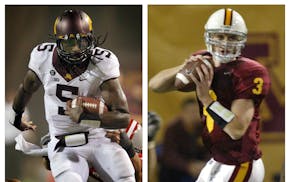The fans who remained for the end of Tuesday night's game at Target Field missed out on a chance at witnessing a rare baseball occasion, one rarer than a starter pitching a one-hitter or a batter hitting three home runs in a game:
The four-inning save.
Obviously, it is not the kind of performance that draws attention to itself in baseball the way a diving catch does. But it does say that a relief pitcher was able to preserve a lead over the final four innings of a game, presumably after a starter was lifted following the first five.
In Tuesday's case, Anthony Swarzak was given the ball in the sixth inning with a one-run lead after Mike Pelfrey had thrown 96 pitches and given up four runs over five innings. Swarzak promptly struck out the side on 12 pitches in the sixth inning. He made the seventh and eighth innings look easy, too.
He came out for the ninth inning with a four-run lead and retired the first batter, but a Trevor Plouffe throwing error, followed by a single, ended Swarzak's night.
"No, we won the game. Nothing to be disappointed about," Swarzak said Wednesday when asked if he was disappointed he didn't earn a save. "That's the important thing. … It would have meant a lot to me. But I just wasn't aware it was a save opportunity."
Thus, according to Baseball-Reference.com, Swarzak failed to become the first Twins pitcher to earn a four-inning save since Brian Bass did it in April 2008 against the White Sox, the only time in Ron Gardenhire's tenure that a reliever has gone four innings for a save. There have been only 38 four-inning saves in the major leagues since Gardenhire's first season of 2002, compared to 71 one-hitters and 109 three- or four-homer games.
A save for Swarzak would have been the first of his career. He didn't get it, although he did achieve what he is paid to do as a long reliever — eat up innings. Tuesday's outing was his 14th relief appearance of at least three innings, all since 2011.
"I didn't know the rule [for earning a save]," Swarzak said. "I thought it was three runs, and we were up by four. … But I'm OK. Pitching well, helping us win, was more important."
Staff writer Phil Miller contributed to this report.

Former Gophers football standouts embrace being basketball dads

Reusse: Once-formidable Twins starting rotation vulnerable without López

Twins lose second in a row to Blue Jays as bullpen falters late
What is the 'House settlement,' and what does it mean for the Gophers and NCAA?

